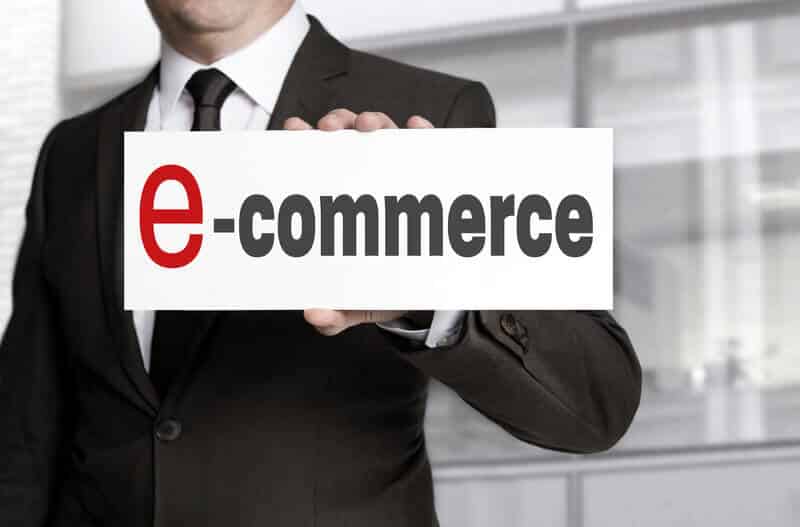E-commerce businesses operate with different business models from conventional brick-and-mortar businesses. The primary differences are the operational and technological aspects of the business which are often key to the company’s success as well as value drivers for the business. Consequently selling an e-commerce business is a bit different from selling a conventional business and your Business Broker must be familiar with how your business operates, e-commerce metrics, and how to value an e-commerce business. Pacific Business Sales is the leading business broker for e-commerce businesses throughout California including Orange County, Los Angeles County, and the great bay area and silicon valley.
Choosing an e-commerce Business Broker
Your Business Broker is the first point of contact for prospective buyers so they must be knowledgeable about your business, e-commerce, and the metrics for your business. Your Business Broker must understand your company and its business model so they can accurately convey this to prospective buyers. At Pacific Business Sales we understand technology companies, e-commerce, digital marketing, the platforms you run on such as WordPress, Magento, Shopify, WooCommerce, BigCommerce, and most importantly how to value and sell e-commerce businesses. Pacific Business Sales specializes in the sale of eCommerce, technology, industrial, manufacturing, and construction companies ranging from $1 million in sales to $50 million in sales.
Confidentially
Of course, a key concern for owners-sellers is the confidentiality of the prospective sale. Our sales process ensures the prospective sale of your business remains confidential. Our advertisements for the business provide an overview of the business, without any details that would compromise the confidentiality of the sale. Prospective buyers only receive the Confidential Information Memorandum after they have signed a Confidentiality Agreement and completed our Buyer Profile with their financial information.
Key Factors and Value Drivers
- Financials, Revenue, Earnings & Growth
- Website & e-commerce platform – technology
- Traffic
- Age of the business
- Customer service – reviews, metrics, on-time delivery
- Logistics and Fulfillment
- Inventory
- Supplier Relationships
- Technology
Preparing to Sell Your e-commerce Business
- Financial statements
Make sure your financial statements (P&Ls, tax returns, balance sheet, and inventory) are up-to-date and accurate before you take your company to market. - Earnings
Earnings, more specifically, Discretionary Earnings (DE) and EBITDA are the primary value driver for your business. For every dollar you add to your DE or EBITDA the value of your business is increased by $3 or more. Thus, if your DE increases by $100,000 the value of your business will increase by $300,000. - Growth
Growth is important for any business, and even more so with e-commerce businesses. The e-commerce market has seen explosive growth for several years and this has become an expectation for e-commerce companies. That is not to say that an e-commerce business with flat or modestly growing sales is unsellable, but buyers do expect these companies to be growing. - Analytics & Metrics
E-commerce buyers are different from most buyers and are very focused on the analytics and metrics for your website and e-commerce platform. Make sure your analytics and metrics are presentable and most importantly you have the data available. - Traffic
Of course, traffic is a key interest to prospective buyers. The website traffic has a direct relationship to your sales revenue, conversions, and ultimately your earnings. - Conversion rate data
Most buyers will want to see data on your conversion rates as well as retention data if you have it. A website with excellent conversion rates offers opportunities for expansion and demonstrates the website and products are satisfying customer demand. - Customer base and concentration
Customer data of course is also critical. If your company has a diverse customer base it is seen as a lower risk than a company with a few key customers. Likewise, a large-diverse customer base offers opportunities for expansion. - Sales channels
Your sales channels are also of interest to prospective buyers. If customers are buying directly from your website via organic traffic, Adwords, and other digital channels this is a lower risk than a company that is solely dependent on sales through Amazon. - Marketing
Customer acquisition is of course of interest to buyers. Again, if your company has its own marketing campaigns and is driving customers and sales to the site this is a stronger value proposition than a company that relies on customer acquisition through other channels. - Inventory – update and sell off any old inventory
It is important that your inventory is current and turning. Sell off any old inventory or slow-moving inventory. Old and slow-moving inventory does not add value and in fact can be a sticking point in negotiations as buyers do not want to buy this inventory. - Organize product categories
Review your product descriptions and categories to ensure they make sense and are easy to understand. Buyers will be reviewing this and must be able to comprehend it easily. If there are too many categories it can be overwhelming and confusing. Likewise, too few categories can lack sufficient detail to understand the business and trends. - Organize customer data, remove duplicates, inactive
Update your customer database and CRM to remove duplicates and inactives. It is important that this data is accurate and up to date.
While there are nuances to selling an e-commerce business, the overall sales process is the same and follows our 7 Step Process for Selling a Business.
E-commerce is continuing to grow rapidly and showing no signs of slowing down. Projections for e-commerce businesses remain optimistic with revenue and earnings expected to steadily increase making these businesses highly sought after by buyers and commanding higher multiples on the market. Pacific Business Sales knows how to deliver a premium price for the sale of your e-commerce business.





